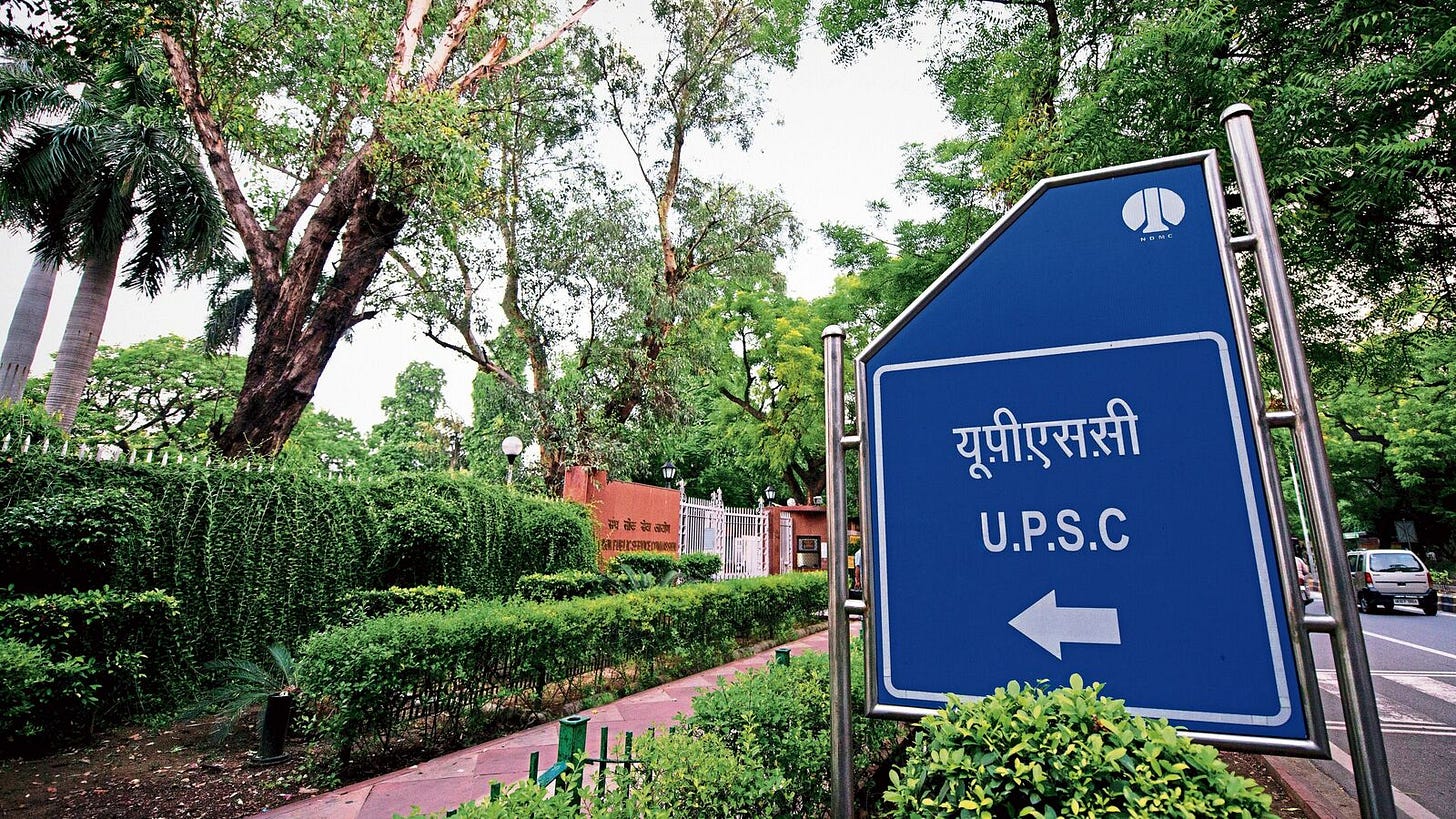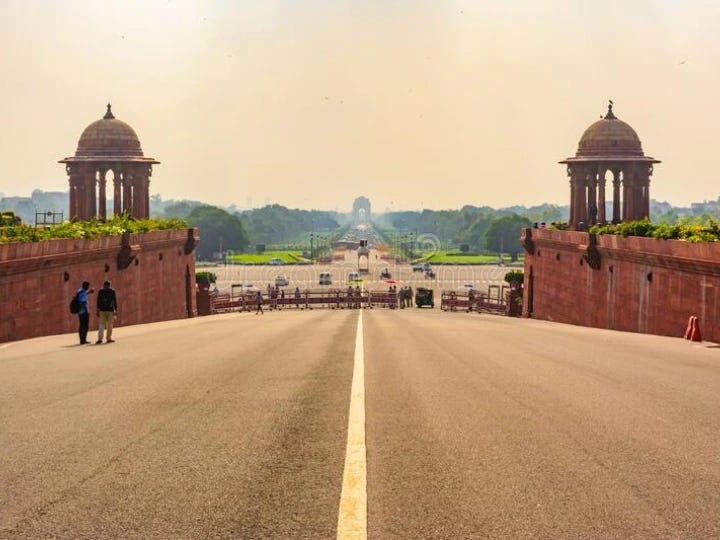Lateral Entries and Modi Government’s Inability to Distinguish Between Civil Services and Political Appointments
This episode raises three issues: the need for expertise within govt, the false dichotomy between representation and merit, and the distinction between political appointments and career bureaucracy
Published in Times of India
The recent episode around lateral entries in the Government is instructive on multiple levels. Before we can draw out the meaning of these developments, we must first set the context. The larger context is that the BJP and its parent body - the RSS - are seen to be anti-reservation and thus seemingly always looking for ways to do away with it. This perception was ably harnessed by the Opposition in Bihar in 2015 when Lalu Yadav recast the election as a battle between forward and backward castes after Mohan Bhagwat spoke of the need to review reservations - and then again in the 2024 national election when the BJP's grandiose "400 paar" ambition was seen as a desire to amend the Constitution and do away with reservation. In both cases, the BJP faced heavy electoral repercussions - losing the Bihar election and, in 2024, losing its majority. The BJP is now saddled with multiple coalition partners - and that provides the immediate context. The third and final context is the spate of upcoming state elections, which it can ill afford to lose lest it cement the notion that it is on its way out.
With this backdrop, let's examine the policy and its politics. The BJP government proposed 45 mid-level bureaucratic posts for lateral entry, citing a need for expertise. These single-cadre posts were not subject to the usual reservation quotas, sparking outrage both within and outside the coalition government. Despite a brief defense, in which the government gamely put out names such as former Prime Minister Manmohan Singh as examples of Congress’ own lateral hires - the government quickly scrapped the proposal.
This episode raises three critical issues: the need for expertise within government, the false dichotomy between equitable representation and merit, and the distinction between political appointments and career bureaucracy.
On the first issue, the Government can and must harness citizens' collective expertise for nation-building. It is also evident that no Government in India - state or national - lacks access to expertise. Governments have multiple channels to get technical know-how and domain knowledge - from advisors to committees and even the much-misused provision for consultants. However, the issue in governance and administration is rarely about technical know-how - but is instead about political judgment, regarding prioritization and tradeoffs and building consensus. No mid-level bureaucrat on a temporary deputation can exercise this kind of judgment. And it is not clear that the Government - with its penchant for centralized and top-down decision-making - wants anyone to. It is also not clear that the Government needs to bypass existing recruitment processes for the bulk of the positions opened, such as those related to shipping, roads and highways, social welfare, and so on. In fact, if the Government finds itself incapable of addressing these ongoing issues through routine processes, then the issue is obviously larger than the 45 positions opened.
The second issue is the repeated positing of merit as somehow incompatible with questions of equitable representation. It is the highlighting of this false tradeoff which leads to the perception that the BJP is anti-reservation. This tradeoff has been debunked multiple times and needs no rebuttal here. Moreover, given the generalist nature of many of the advertised positions, it is unclear why the Government could not have followed a similar process of reservation in their recruitment process as well. In fact, the recent DoPT directive which removed the six decade bar on government officials participating in RSS activities along with lack of reservation supports the Opposition charge that this process is meant to do away with reservations through the backdoor while appointing party affiliates to important bureaucratic positions.
This brings us to the third issue. All Governments pursue a mandate based on a stated ideological vision. It is thus natural for Governments to co-opt individuals aligned with that ideological vision and mandate. However, individuals thus co-opted are explicitly political appointments. The BJP circulated a list of names to counter the Opposition - but all of those names were political appointees. No one in the Opposition has criticized political appointments in the Modi Government - which exist in the form of OSDs and Advisors and even a few Ministers. However, in circulating the list, the Government seems unable to distinguish between the bureaucracy as an institution and political appointees - a conflation that has occurred repeatedly in its demand for total obeisance and partisanship from civil services, last seen in its baffling review of the UP elections where one reason for its poor performance was the apparent lack of cooperation extended by the District Magistrates.
In conclusion, the rapid policy reversals we've witnessed over the past two months reveal the government's struggle to navigate the new political reality ushered in on June 4. While consensus-building is crucial in any democracy, especially one as diverse as India, the Modi government's previous majorities allowed it to disregard dissenting voices. Now, however, the same imperial reflexes are resulting in embarrassing rollbacks, highlighting the need for a more nuanced approach to governance in a coalition era.
Also Read:
Will BJP's Employment Initiatives Work?
The imprint of the shock upset in the recently concluded election is all over the budget. There is, of course, the largesse to BJP's key alliance partners in Andhra Pradesh and Bihar, but another aspect is the overt focus on creating jobs for youth. This marks a notable departure from before. In fact, a review of the three previous budgets shows no such…


